Research
For our bestselling book, Success Built to Last, we conducted a “World Success Survey” with Wharton in which Mark Thompson interviewed high achievers—from the Richard Branson to Steve Jobs, from Presidents to Nobel laureates.The survey was conducted by Bonita Thompson, Howard Moskowitz, Mark Thompson, and Jerry Porras in 110 nations using the Wharton database of high achievers.
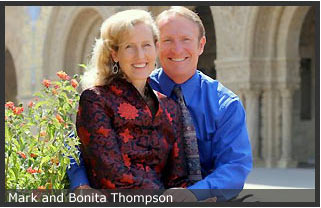
Among the top-line results were further confirmation that successful people don’t rely on the approval of others to pursue their goals, causes, or callings.
Successful people take the initiative despite social pressures rather than because of them. They are more committed to doing what they love than being loved by others. They don’t wallow or obsess on a single defeat or rely on finding scapegoats or blame when things go wrong. Instead, successful people place higher priority on being effective in getting the outcomes they seek.
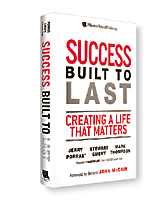 We found that every high achiever had three definitions of success that help them produce long term (over 20 years) of impact in their profession: Purpose, Passion and Performance.
We found that every high achiever had three definitions of success that help them produce long term (over 20 years) of impact in their profession: Purpose, Passion and Performance.
Even though all three dimensions are necessary for long-term success, every individual tends to identify more strongly with one of these three over the other two dimensions. All groups said that the traditional dictionary definition of success—notably the significant achievement of fame, wealth, and power—no longer describes what success means to them. Although popularity and affluence, for example, are nice outcomes, people prefer to define success as the ability to “make a difference,” “create lasting impact,” and being “engaged in a life of personal fulfillment,” according to the study. What is special about enduringly successful people is that they won’t settle for less than this!
The three P’s are:
Purpose / Meaning: Driven primarily to Make a Difference, Be Meaningful Segment (44% of sample had propensity to this dimension).
Passion / ThoughtStyle: Dedicated Passions Segment (29% of sample).
Performance / ActionStyle: Love to Win… Be Accomplished and Love Work Segment (27% of sample).
It’s worth mentioning that there were no significant differences in these attitudes based on demographics. They were consistent regardless of age, gender, or geographic location.
The Pleasure of Finding Things Out*—A Look at the Research Behind “Success Built to Last” ( .pdf)
 Mark Thompson and Bonita Buell-Thompson are hosts for a web show series sponsored by the Leader to Leader (formerly Peter Drucker) Institute and American Express. The 2-minute on-location interviews provide fun and insightful tips for leaders on how to better manage their lives and work.
Mark Thompson and Bonita Buell-Thompson are hosts for a web show series sponsored by the Leader to Leader (formerly Peter Drucker) Institute and American Express. The 2-minute on-location interviews provide fun and insightful tips for leaders on how to better manage their lives and work.
Below are six of 100 engaging micro-interviews on Your Insight on Facebook.
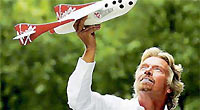
What happened when the virgin flight of Virgin Airlines failed?
Sir Richard Branson recalls how he and Virgin Airlines recovered from the huge set back to create a better flying experience for passengers everywhere. View Video
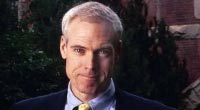
Jim Collins talks about how humility based on a burning ambition to change the world defines a “Level 5” leader.
Jim Collins is a student and teacher of enduring great companies – how they grow, how they attain superior performance, and how good companies can become great companies.
View Video
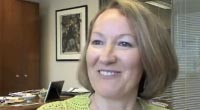
Susanne Lyons, former CMO for VISA and Charles Schwab, tells us not to turn down the voice inside all of us that lets us know if we’re truly happy in our lives and careers.
Susanne Lyons spent 25+ years in executive management at top financial services companies in America including as SVP of marketing at Fidelity Investments. View Video

Super successful serial entrepreneur Tony Hsieh sold his first company because, even though it was a great idea, he didn’t like going into the office anymore. He went on to found Zappos.com with a very different vision. He shares what happiness and success mean to him today.
Tony Hsieh is the current CEO of online shoe seller Zappos.com. Prior to joining Zappos, Hsieh co-founded and sold the internet advertising network LinkExchange to Microsoft for $265M in 1998. Hsieh graduated from Harvard University with a BA in Computer Science. View Video
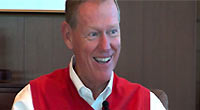
Ford CEO Alan Mulally is turning around one of the world’s largest corporations by focusing on customers.
He talks about how shifting accountability to leaders rather than employees, for the effectiveness of corporate communication, can transform a leader’s behavior and energize an organization. View Video
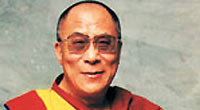
View Video